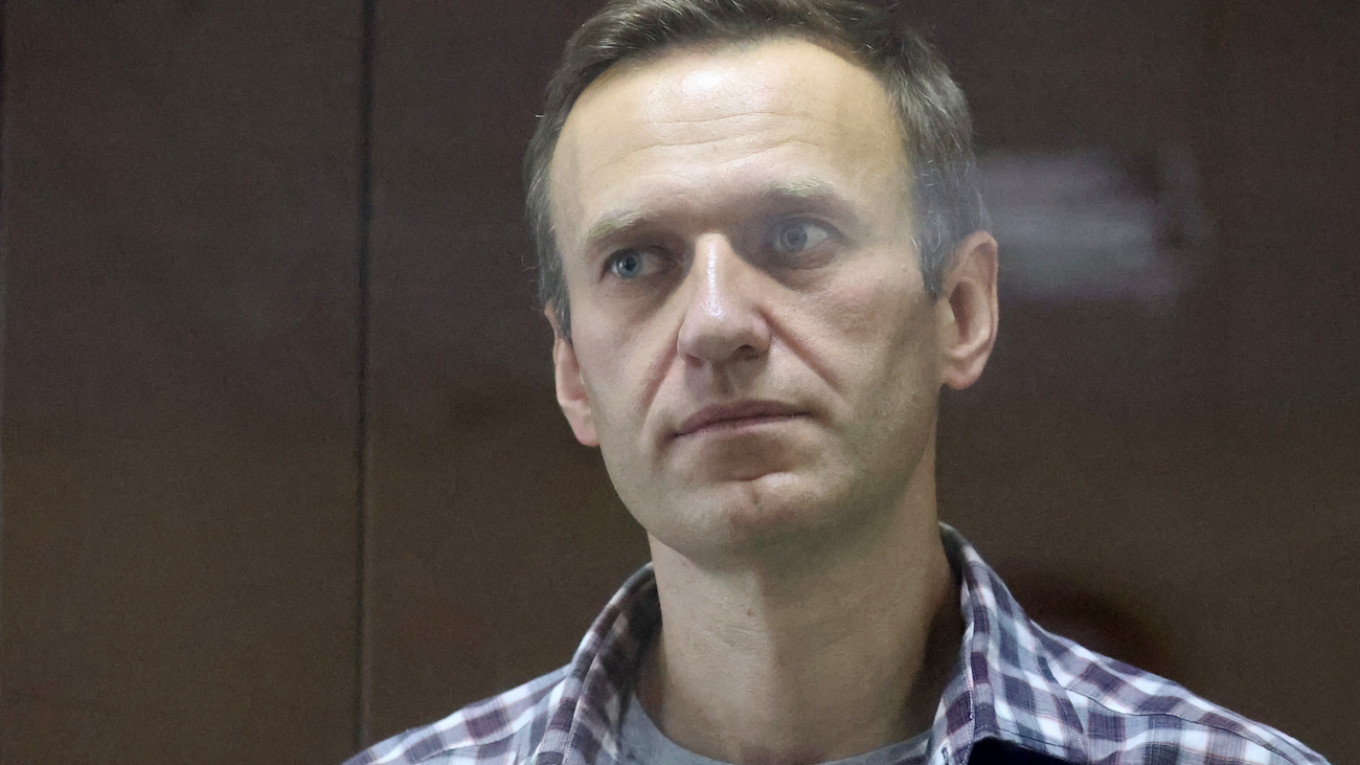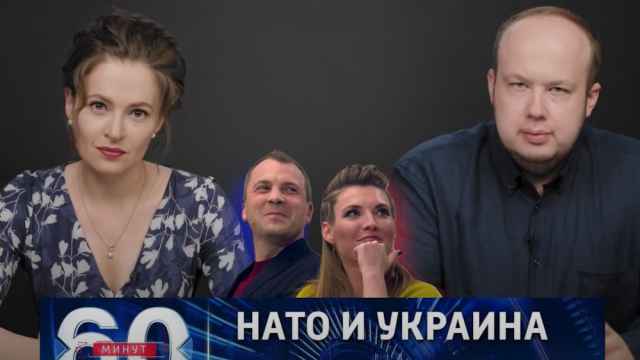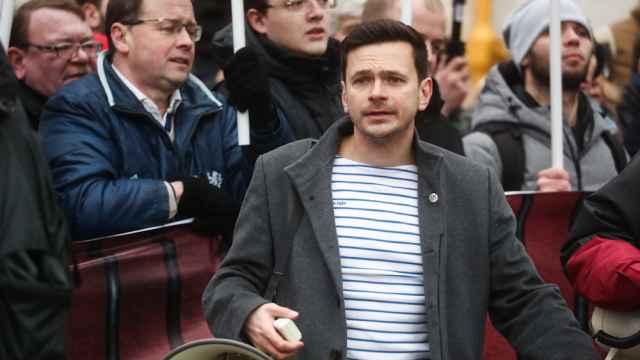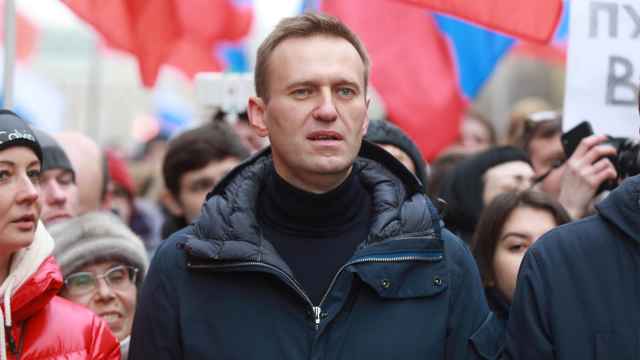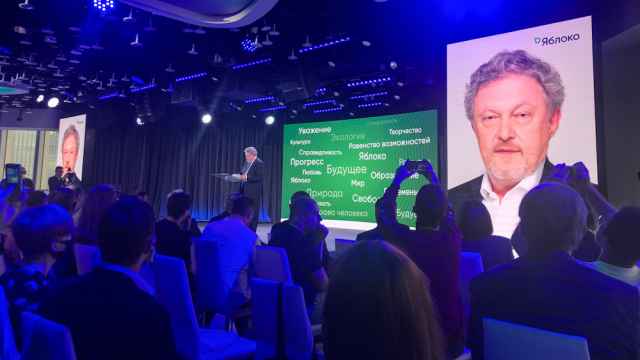Alexei Navalny's personal doctors on Thursday urged him to "immediately" call off his hunger strike as the jailed Kremlin critic said he was full of "pride and hope" after nationwide protests.
Thousands of Russians took to the streets in dozens of cities across the country on Wednesday evening, after the West warned the Kremlin that it would face "consequences" in the event of Navalny's death.
President Vladimir Putin's best-known critic barely survived a poisoning with the Novichok nerve agent in August, and his health has been failing since he declared a hunger strike on March 31 to demand proper medical care for a range of ailments, including back pain and numbness in his limbs.
On Thursday, his private doctors —who have been unable to examine their patient in his prison colony — said they were asking Navalny to "immediately halt the hunger strike to preserve your life and health."
"If the hunger strike continues even a little longer, we will simply have no one to treat soon," cardiologist Yaroslav Ashikhmin and four other doctors said in a statement published by Mediazona, an independent news website.
The physicians said it was thanks to "huge" public support that Navalny was on Tuesday taken to a civilian hospital in the central city of Vladimir and received access to "something that looks like an independent examination."
The doctors added that they had received the results of Navalny's health assessment and his medical tests earlier Thursday and would inform the opposition figure of their opinion the following day.
Navalny's right-hand man Leonid Volkov said the 44-year-old's doctors had received information about his health only because the Russian authorities responded to public pressure.
"It is very sad that one has to refuse food for 23 days to achieve such a result," Volkov said.
Last weekend, Navalny's doctors said he could die at "any minute," pointing to the opposition politician's high potassium levels.
'Pride and hope'
Navalny himself said in an Instagram post that he was full of "pride and hope" a day after protesters rallied in support, calling them the future of Russia.
"Yesterday you walked together with me, and today I will be lying on my cot and imagining myself walking with you and for you," he said.
Thousands of people had marched through central Moscow near the Kremlin chanting "Freedom" and "Putin is a thief!" just hours after the president delivered his annual state of the nation address.
Although large crowds gathered, the protests were not on the scale of pro-Navalny demonstrations seen in January and February, when tens of thousands rallied and more than 10,000 people were arrested.
The Kremlin downplayed Wednesday's demonstrations, which saw more than 1,900 people detained across Russia.
Kremlin spokesman Dmitry Peskov told reporters that he saw "no reason" to comment on the rallies.
In Russia, participation in unauthorized demonstrations can lead to a fine or a brief jail term, and prosecutors are now seeking to declare Navalny's Anti-Corruption Fund and the network of regional offices "extremist" organizations.
The majority of the detentions — more than 800 — took place in Saint Petersburg, where police violently dispersed crowds with shock sticks.
Navalny's spokeswoman Kira Yarmysh was among those detained and was given a 10-day stint behind bars for calling on people to join unauthorized rallies. Key Navalny aide Lyubov Sobol was also taken into police custody ahead of the rally in Moscow.
Rights group Amnesty International condemned the "crackdown on peaceful protesters" and the use of "excessive force, including tasers" in dispersing the crowds.
Navalny was arrested when he returned to Russia in January after months recovering in Germany from a Novichok poisoning he blames on the Kremlin — an accusation Moscow rejects.
He was sentenced to two-and-a-half years over an old fraud conviction and has been serving time in a penal colony about 100 kilometers east of Moscow.
A Message from The Moscow Times:
Dear readers,
We are facing unprecedented challenges. Russia's Prosecutor General's Office has designated The Moscow Times as an "undesirable" organization, criminalizing our work and putting our staff at risk of prosecution. This follows our earlier unjust labeling as a "foreign agent."
These actions are direct attempts to silence independent journalism in Russia. The authorities claim our work "discredits the decisions of the Russian leadership." We see things differently: we strive to provide accurate, unbiased reporting on Russia.
We, the journalists of The Moscow Times, refuse to be silenced. But to continue our work, we need your help.
Your support, no matter how small, makes a world of difference. If you can, please support us monthly starting from just $2. It's quick to set up, and every contribution makes a significant impact.
By supporting The Moscow Times, you're defending open, independent journalism in the face of repression. Thank you for standing with us.
Remind me later.


